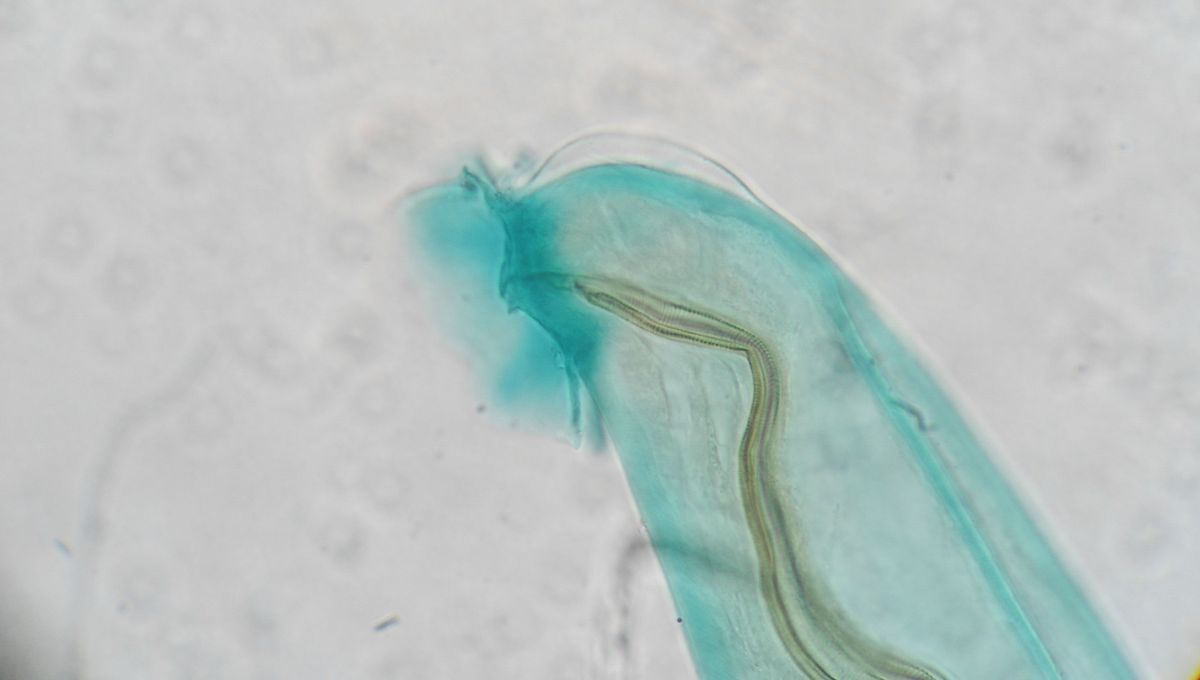
A parasitic worm that can jump from its usual host species into mammals is becoming more widespread in rats in the southern USA, sparking concerns about the risks to humans.
The rat lungworm, Angiostrongylus cantonensis, typically moves between snails and rodents to complete its life cycle. Rats eat snails infected with worm larvae, which then migrate into the rat nervous system to mature into adult worms. From there, they wriggle their way into the rats’ lungs, laying eggs that hatch into new larvae. The larvae then find their way into the digestive system where they are expelled in feces, and once that is ingested by a snail the whole cycle starts again.
Humans and other mammals don’t generally come into the picture – unless, that is, they accidentally eat a snail, or some veggies that have been contaminated. In these cases, the parasite can cause a potentially serious brain infection called eosinophilic meningitis.
When we talk about meningitis, we’re usually referring to the much more common bacterial or viral forms of the disease, but less common fungal and parasitic versions also exist. A. cantonensis eosinophilic meningitis causes symptoms including a severe headache, stiff neck, nausea, sensitivity to light, and sometimes a low-grade fever.
There is no specific treatment for parasitic meningitis. While most cases will get better on their own, there is a risk, albeit rare, of complications and even death, so health authorities are keen to keep an eye on the spread of these parasites.
A recent report from the Centers for Disease Control and Prevention (CDC) gives the results of a study of 33 wild brown rats that were found dead in Atlanta, Georgia between 2019 and 2022. Analysis showed that seven of the animals had nematode parasites within their heart, lung, and brain tissues. Of these, four were confirmed to be infected with A. cantonensis.
The remaining three produced inconclusive results due to the poor quality of the samples, but the report does note that the lesions observed in the rats would be consistent with A. cantonensis.
These may sound like very small numbers, but by rights, this parasite should be nowhere near the US at all. It’s an invasive species, most commonly seen in Asia, which is thought to have been introduced to the US states of Hawaii, Texas, Louisiana, Alabama, and Florida via overseas trade.
Now that the CDC has confirmed the presence of the parasite in Georgia, we can add another state to that list.
The report explains that six suspected cases of human A. cantonensis infection were detected between 2011 and 2017 in Tennessee, Texas, and Alabama. There have also been numerous reports of infections in nonhuman primates and other mammals across various states.
In order for the parasite to thrive, it needs not only a rodent host but a snail one as well. Unfortunately, there are a number of gastropod species in the US that are thought to be susceptible to infection with A. cantonensis.
Human infections are still a rare event, but the report does stress that clinicians should keep the possibility in mind if they’re presented with a case of suspected eosinophilic meningitis.
In terms of prevention, we can take our cue from those living in areas where the parasite is much more widespread, such as thoroughly washing produce and avoiding the ingestion of undercooked or raw snails.
The study is published in Emerging Infectious Diseases.
Source Link: A Parasite That Can Cause Meningitis Is Spreading To More US States